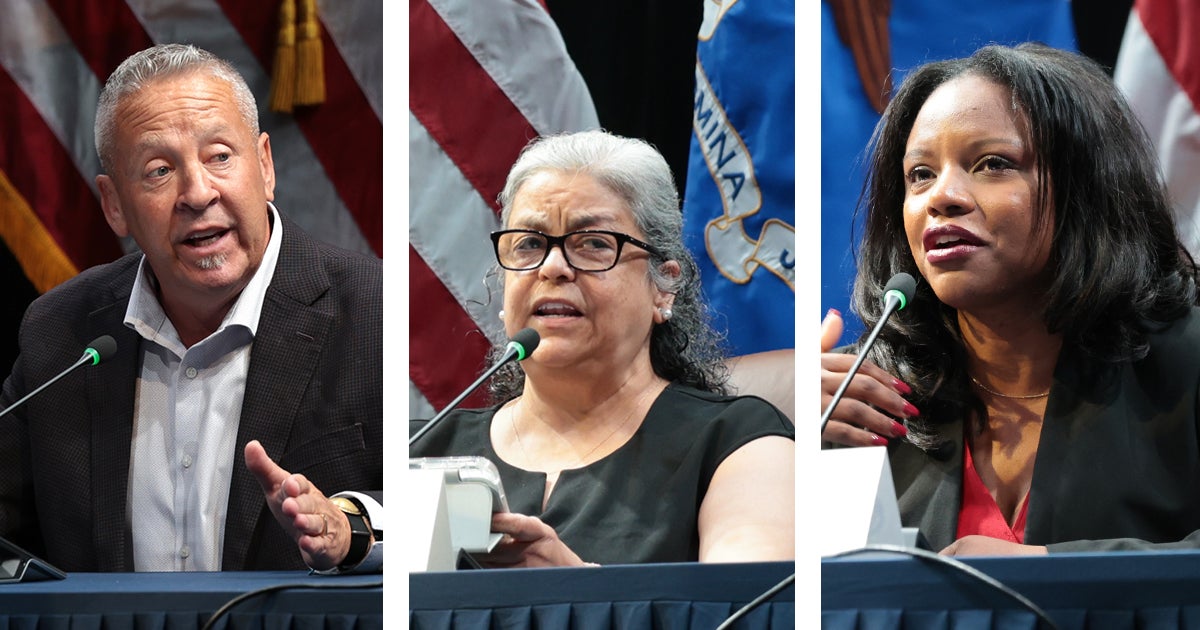
by Jorge Gomez • 4 minutes
On Monday, the President’s Religious Liberty Commission held its third hearing, continuing its focus on religious freedom issues in public education. The Commission heard from experts around the country, including the stories and perspectives of teachers, coaches and families from public as well as private, faith-based schools.
Senior Counsel Keisha Russell testified as an expert witness, offering perspective about ongoing legal challenges and attacks on religious liberty in public schools. She described how teachers and religious schools have been censored from mentioning God, told they can’t pray before a game between two Christian football teams or pray after simply because of the religious nature of the prayer.
“I started my career as a teacher in special education in Atlanta public schools,” Keisha said. “I was convicted by my faith to teach these students and make sure that when they left my classroom, they were in a better place than when they got there. ”
“Our kids are our most precious assets that we have in society,” she added. “And right now we’re just giving them over to people who don’t love them. They don’t love our country. They don’t love religion. They don’t love morality. And they’re training students to grow up and feel the same way, and that’s why we have a lot of the issues we have right now.”
“We really need to do what we can to teach our children the foundational principles of our country. We have to take back our public schools. We have to do so deliberately and intentionally, and we all have a role in that.”
The Commission also heard from former First Liberty client Coach Joe Kennedy, whose victory at the U.S. Supreme Court in 2022 set a historic precedent protecting religious expression for teachers, coaches and public employees nationwide.
Coach Kennedy recounted his personal struggle after the school fired him for taking a knee to pray on the 50-yard line after each football game. He shared about the toll that this legal battle took on him and his family—all because he lived out his faith and exercised the constitutional rights he fought for as a U.S. Marine.
“I could not understand that I was being prosecuted and persecuted for a 15-second prayer on the 50-yard line,” Coach Kennedy told the Commissioners. “And it cost me everything.”
“I had to sue my wife who was the HR director for the school district,” he continued. “We almost got divorced over it.”
“We fought for seven years, and we won. Me and Kelly went through the court system and twice to the Supreme Court. But people are still being persecuted and prosecuted for their faith,” Coach concluded.
Connecticut schoolteacher Marisol Castro testified about the discrimination she’s facing because she displayed a small crucifix in her personal space near her desk. After more than 30 years of exemplary service, the New Britain School District is threatening to fire Marisol because she didn’t remove the cross from her workspace.
She was first suspended without pay, then placed on administrative leave, and reassigned to a non-teaching role.
“They said I wouldn’t be allowed to return to the classroom until I hid the crucifix,” Marisol shared.
“Since I sued the district, the officials have continued to treat me badly,” she told the Commission, as she held back tears. “They have lied about me in the media, and they are destroying the reputation that I have spent 33 years building. “
“How can we do our jobs well when many education leaders today don’t understand the Constitution themselves? Please do what you can to educate school districts in America about the true meaning of the Establishment Clause and the Free Exercise Clause.”
Carroll Conley—a board member for Bangor Christian Schools—described to the Commission how the state of Maine keeps targeting religious schools and excluding them from participating in public student-aid programs.
Bangor Christian is the school at the center of First Liberty’s landmark Supreme Court victory in Carson v Makin, which set a precedent that states cannot not discriminate against religious schools for public funding. The ruling made clear faith-based organizations must be treated the same as everyone else.
But Maine officials have maintained an attitude of hostility and anti-religious bias, refusing to follow the Supreme Court’s direction. First Liberty is still fighting for Bangor Christian and argued their case in federal appeals court earlier this year.
“The testimonies at this week’s meeting highlight the importance of ensuring that the religious liberty of our teachers and faith-based schools are upheld both now and into the future,” said First Liberty President & CEO Kelly Shackelford.
Kelly serves as one of the Commissioners and represents the only nonprofit religious liberty legal organization of its kind on the Commission.
“As heard in the testimonies from current and former clients, religious liberty is currently under attack from those who ignore the protections guaranteed in the First Amendment,” Keisha added. “We trust that the recommendations made by the Commission will reach elected officials who are sworn to uphold and protect the U.S. Constitution.”